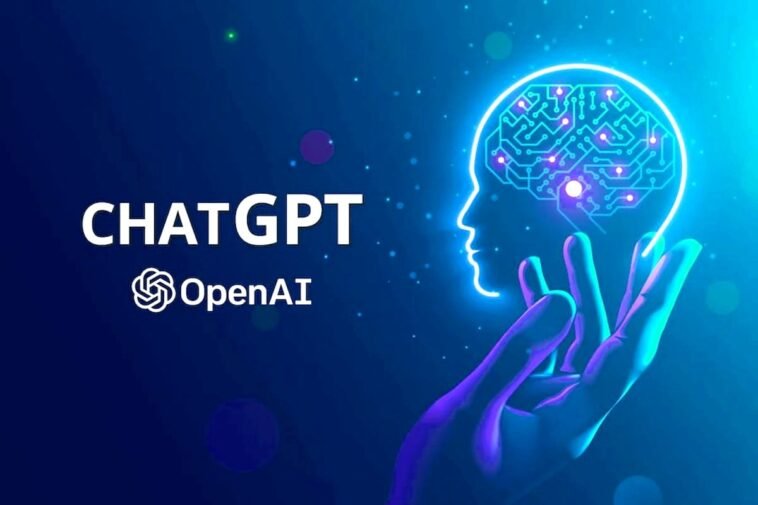In the ever-evolving landscape of software development, leveraging advanced tools is essential for staying ahead. One such tool that has gained immense popularity is ChatGPT, a powerful language model. Developers worldwide are harnessing the capabilities of ChatGPT through effective prompts to enhance their coding skills and streamline their workflows.
In the world of coding, where precision and efficiency are paramount, developers are constantly seeking ways to improve their skills. ChatGPT, developed by OpenAI, has emerged as a valuable ally for developers. This article will explore the five best ChatGPT prompts that can significantly contribute to becoming a proficient and efficient developer.
Contents
Understanding ChatGPT Prompts
Before diving into the specific prompts, it’s crucial to understand the nuances of ChatGPT prompts. A prompt is essentially the input or query given to the model, guiding its output. Crafting effective prompts is an art that developers must master in order to extract optimal results from ChatGPT.
Top 5 Best ChatGPT Prompts
1. Problem-solving Prompts
Developers often encounter coding challenges that can be time-consuming. Crafting prompts that target specific problem-solving scenarios can help leverage ChatGPT’s capabilities to overcome these challenges efficiently. For instance, prompting the model with, “How can I optimize this code for better performance?” can yield insightful solutions.
Example:
**Prompt:**
How can I optimize this code for better performance?
**ChatGPT Response:**
Consider refactoring your loops to reduce unnecessary iterations. Additionally, try implementing caching mechanisms to store frequently used data and improve overall runtime.
2. Code Refactoring Prompts
Improving and optimizing existing code is a common task for developers. Crafting prompts that focus on code refactoring can assist in making code more readable, efficient, and maintainable. A prompt like “Suggest ways to refactor this function for clarity and efficiency” can guide the model and provide valuable suggestions.
Example:
**Prompt:**
Suggest ways to refactor this function for clarity and efficiency.
**ChatGPT Response:**
Consider breaking down the function into smaller, modular components. This not only improves readability but also allows for easier debugging and maintenance. Additionally, explore using more efficient algorithms for certain operations within the function.
3. Learning New Technologies
Staying updated with the latest technologies is crucial for any developer. ChatGPT can be a helpful companion in learning new programming languages or frameworks. Crafting prompts like “Give me a beginner-friendly explanation of React.js concepts” can provide developers with accessible insights into new technologies.
Example:
**Prompt:**
Give me a beginner-friendly explanation of React.js concepts.
**ChatGPT Response:**
React.js is a JavaScript library for building user interfaces. It allows developers to create reusable UI components, making it easier to manage complex interfaces. Key concepts include components, states, and props, which form the foundation of React development.
4. Debugging Assistance
Dealing with bugs is an inevitable part of coding. Crafting effective prompts for debugging can save valuable time. Developers can ask, “What could be causing this error in my code?” to get targeted suggestions and insights from ChatGPT.
Example:
**Prompt:**
What could be causing this error in my code?
**ChatGPT Response:**
Check for syntax errors, uninitialized variables, or incorrect data types. Additionally, review recent changes to identify potential issues. If the error persists, consider using debugging tools to trace the problem more efficiently.
5. Project Planning and Architecture
Effective project planning and system architecture are vital for the success of any development project. Crafting prompts like “Suggest a scalable architecture for an e-commerce platform” can harness ChatGPT’s capabilities to assist in strategic decision-making.
Example:
**Prompt:**
Suggest a scalable architecture for an e-commerce platform.
**ChatGPT Response:**
Consider a microservices architecture with load balancing for scalability. Implement a caching layer to optimize performance and utilize a database sharding strategy for efficient data management. Ensure fault tolerance by incorporating redundancy and failover mechanisms.
IV. Improving Prompt Effectiveness
While the power of ChatGPT is evident, the effectiveness of prompts plays a significant role in obtaining desirable outputs. Developers should experiment with prompt variations, considering both specificity and open-endedness, to refine their interaction with ChatGPT.
V. Real-world Applications
Several developers have reported success stories using ChatGPT prompts for various applications. From solving intricate coding challenges to receiving valuable insights on project architecture, ChatGPT has proven its versatility in real-world scenarios.
VI. Common Pitfalls to Avoid
Despite its capabilities, using ChatGPT effectively requires avoiding common pitfalls. Developers should be cautious of overly specific prompts that might limit the model’s response or overly vague prompts that might lead to irrelevant outputs.
Balancing Specificity and Open-endedness
Achieving the right balance between specificity and open-endedness is crucial. Overly specific prompts might restrict the model’s creativity, while overly vague prompts might result in ambiguous or unhelpful responses. Developers should strive for prompts that provide clear guidance while allowing room for innovative solutions.
Conclusion
In conclusion, ChatGPT can be a game-changer for developers when used with precision and creativity. The five prompts highlighted in this article offer a starting point for developers looking to enhance their coding skills and streamline their development processes. By understanding the intricacies of prompts and experimenting with different approaches, developers can unlock the full potential of ChatGPT.
FAQs
- How can I improve the effectiveness of my ChatGPT prompts?
- Experiment with different prompt variations, balancing specificity and open-endedness, and learn from the model’s responses.
- Are there limitations to using ChatGPT for development tasks?
- While powerful, ChatGPT has limitations, and developers should be cautious of relying solely on it for critical tasks.
- Can ChatGPT help with learning entirely new programming languages?
- Yes, crafting prompts for beginner-friendly explanations can assist in learning new technologies.
- What are common mistakes to avoid when creating prompts for ChatGPT?
- Avoid overly specific or vague prompts, and ensure your prompts align with the desired output.
- How can I use ChatGPT for effective project planning?
- Crafting prompts related to project architecture and scalability can provide valuable insights for effective project planning.



